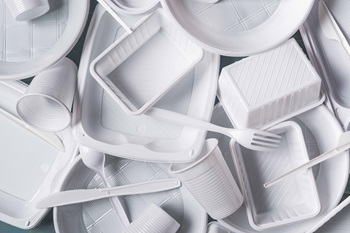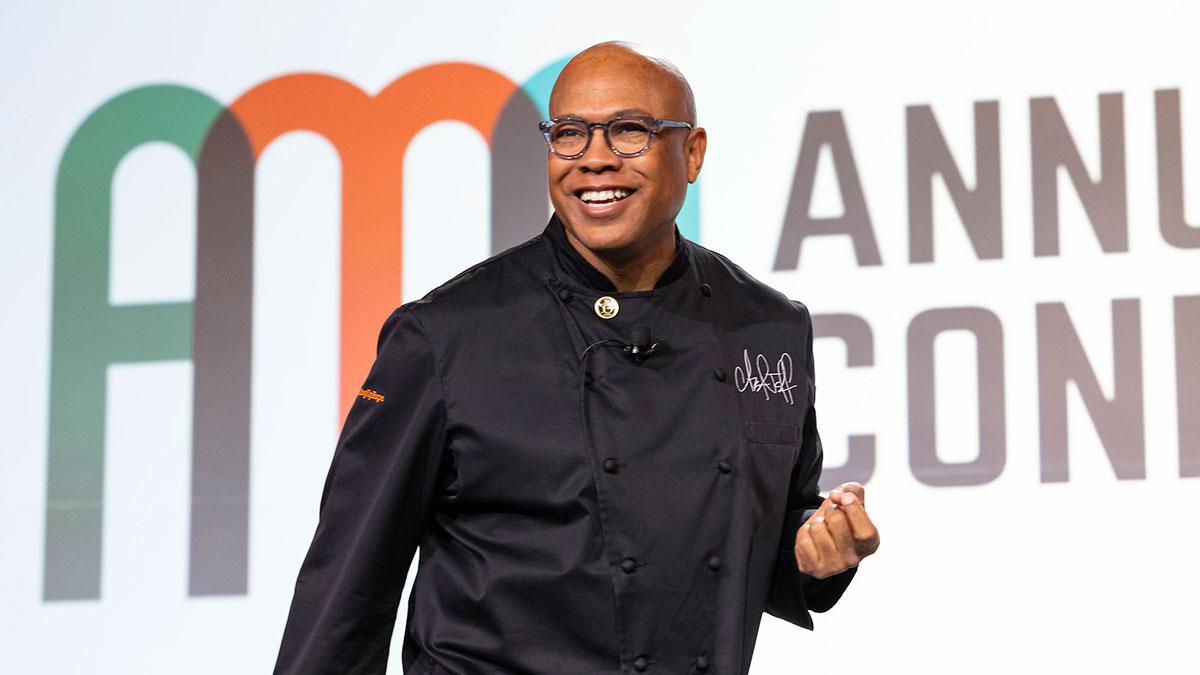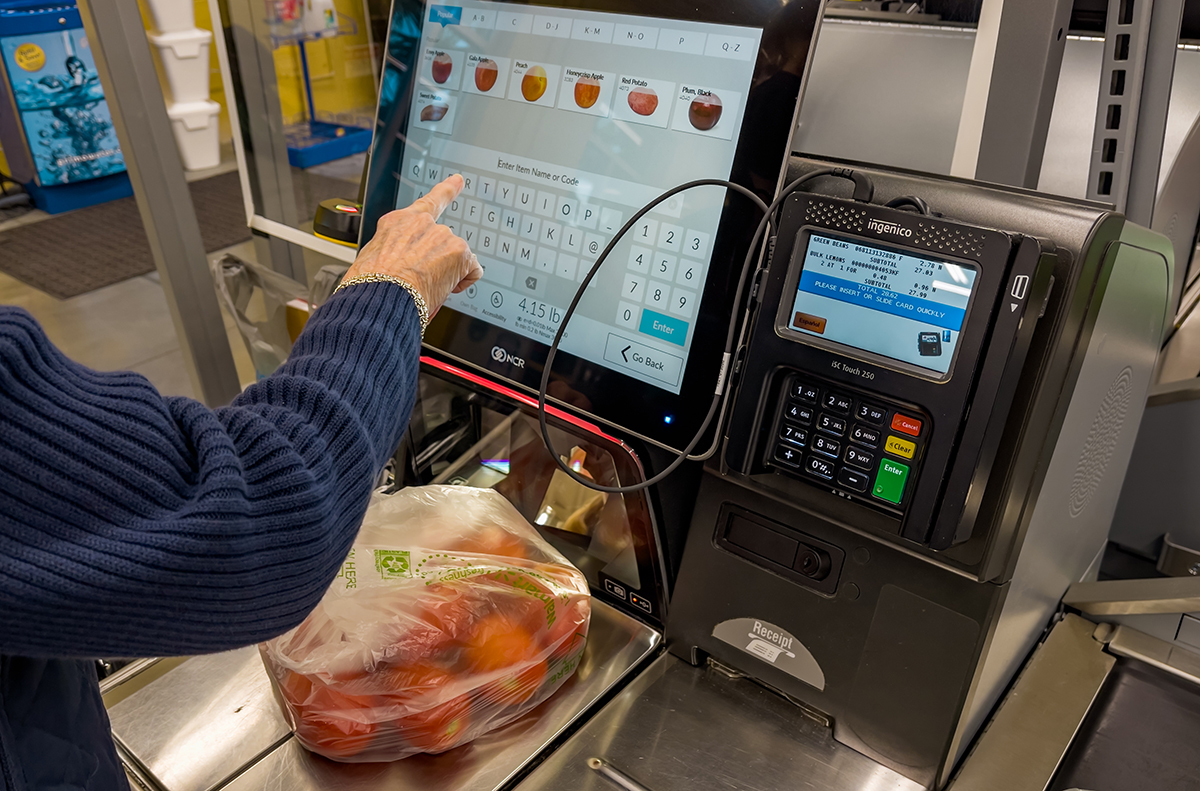By: Marjorie DePuy, Senior Director, Supply Chain and Sustainability, FMI

Over the past months, I have spent countless hours in the COVID-19 era equivalent of a hunting and gathering role. Hunting for groceries online or in-store through steamed-up glasses, or sometimes through that chuckle-inducing acronym, BOPIS, or ‘buy online, pick up in-store.’ After celebrating my successful outings and tipping my delivery partners, I am then confronted with the realities of packaging in these times. I joke that my entryway has turned into ‘Marjorie’s MRF’ because I have so many piles of material to find a new home for. There are extra paper bags to reuse or recycle, extra plastic bags to return to the stores with collection bins, cooler bags to reuse or donate. And this is before I get to my leftover food packaging. If nothing else, most of us are more attuned than ever to the intersection of convenience, protection and wasteful packaging. Even before the COVID-19 pandemic hit, the U.S. used more than 36 billion disposable utensils a year, and since 79% of all plastic is not recycled, we are headed toward a trajectory of having 12 billion metric tons of plastic in landfills by 2050 if we don’t change tack, according to National Geographic.
It’s refreshing to be part of an industry that is actively engaged in finding solutions for some of the thorniest plastics and packaging waste challenges out there. FMI’s Sustainability Executive Committee has discussed packaging and plastics waste issues and recently decided to re-activate a Packaging Sustainability Subcommittee so we can create a real home for these topics, since they are only one piece of our larger sustainability challenges. As a reminder, FMI signed on as a founding activator of the U.S. Plastics Pact in August of 2020, with a commitment to work toward four big visionary goals:
- Define a list of packaging to be designated as problematic or unnecessary by 2021 and take measures to eliminate them by 2025.
- By 2025, all plastic packaging is 100% reusable, recyclable, or compostable.
- By 2025, undertake ambitious actions to effectively recycle or compost 50% of plastic packaging.
- By 2025, the average recycled content or responsibly sourced bio-based content in plastic packaging will be 30%.
FMI has participated in several organizational meetings and begun working on a roadmap that will guide all stakeholders in the plastics ecosystem toward a more circular future. We have also begun to meet in the Problematic and Unnecessary Plastics Workstream and are evaluating the criteria originally outlined in the Ellen MacArthur Foundation’s New Plastic Economy that will be most relevant to the U.S. marketplace going forward.
We realize no individual company can reach these goals without the support of industry, government and NGO peers, and, of course, consumers. We are going to see some exciting shifts in our near future, as innovative solutions on the horizon come closer to our front doors. Closed Loop Partners has launched an Innovation Challenge called Beyond the Bag to identify a range of solutions to the single use grocery bag. Challenge winners will be announced in coming weeks. The EMF also has a new Upstream Innovation Guide to Packaging Solutions. To bring some practical packaging solutions to a broader FMI universe, FMI is also spinning up a team to scope work on an FMI Sustainable Packaging Playbook as well as a Plastic Footprint Resource. We are also supporting the ECRM Sustainable & Eco-friendly Packaging Program March 23-25 – free to retailers.
To learn more about any of these efforts or to get involved, please contact Marjorie DePuy.


 Industry Topics address your specific area of expertise with resources, reports, events and more.
Industry Topics address your specific area of expertise with resources, reports, events and more.
 Our Research covers consumer behavior and retail operation benchmarks so you can make informed business decisions.
Our Research covers consumer behavior and retail operation benchmarks so you can make informed business decisions.
 Events and Education including online and in-person help you advance your food retail career.
Events and Education including online and in-person help you advance your food retail career.
 Food Safety training, resources and guidance that help you create a company food safety culture.
Food Safety training, resources and guidance that help you create a company food safety culture.
 Government Affairs work — federal and state — on the latest food industry policy, regulatory and legislative issues.
Government Affairs work — federal and state — on the latest food industry policy, regulatory and legislative issues.
 Get Involved. From industry awards to newsletters and committees, these resources help you take advantage of your membership.
Get Involved. From industry awards to newsletters and committees, these resources help you take advantage of your membership.
 Best practices, guidance documents, infographics, signage and more for the food industry on the COVID-19 pandemic.
Best practices, guidance documents, infographics, signage and more for the food industry on the COVID-19 pandemic.
